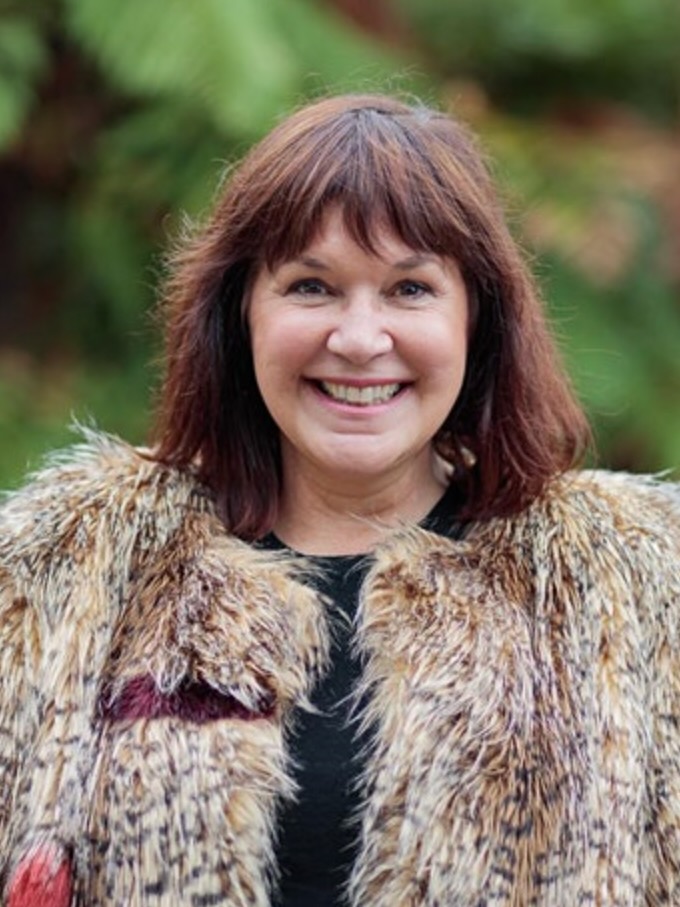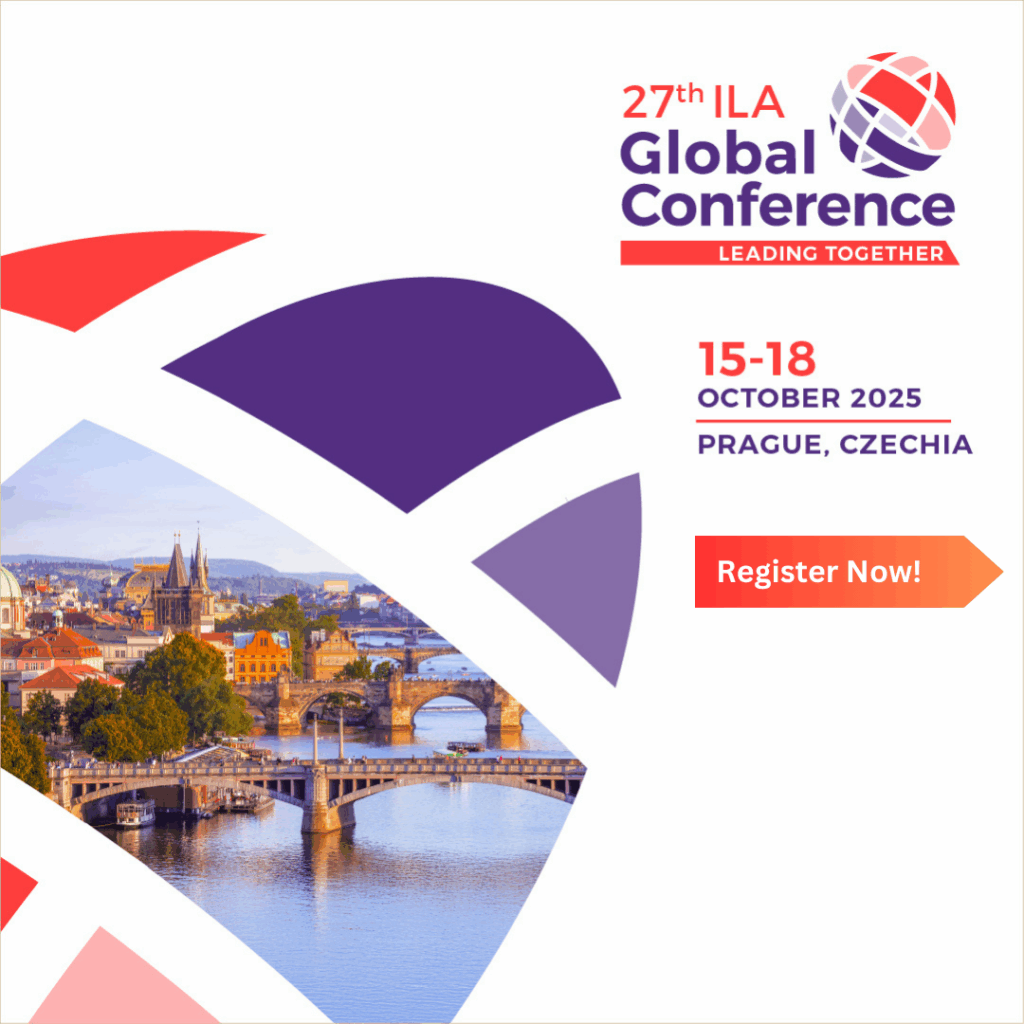
- 29 August 2023
Share:
After a rewarding experience as Leader in Residence at the Atlantic Institute, I am thrilled to have recently launched The Catalyst’s Way – A Handbook for People Who Want to Change the World and, as a companion guide, The Catalyst’s Way – Foundational Storytellers at Oxford University. Both are free to download at the links above.
Khalil Goga, Atlantic Institute Associate Executive Director, introduces my role as Leader in Residence and the challenging need my work addressed in the book’s Foreword:
…Atlantic Philanthropies had the foresight to recognise the leadership that defines everyday life. Whilst many decry a dearth of leadership, there is, in fact, an oversupply of extraordinary leadership that often goes unnoticed. This extends far outside offices, government institutions, boardrooms, and big business. Many of the Fellows in the Programs exemplify this leadership, from working in the background on life-changing medication to leading a community organisation for better housing. Our international staff members recognised this, and discussions led to how we put a finger on what we were seeing in these Programs. How do we analyse these diverse narratives and weave them into an outward-facing story?
By bringing on the leader-in-residence, we could tell the story of this unique, interconnected ecosystem and develop narratives of catalytic leadership that work toward addressing systemic causes of injustice, inequity, and oppression while pursuing lasting and meaningful change.
Defining a Catalyst
As I discuss in the book, a catalyst is someone who causes change to happen. This meaning derives from the Greek root “kata,” meaning “down” and “lyein,” meaning “loosen.” Together these form the word “katalyein,” meaning “to dissolve” and “katalytikos,” “able to dissolve.” Action and capability come together in a synergistic way. Catalysts, as suggested by the term katalytikos, need to be able to effect change. A catalyst works to pull down and dissolve systems that perpetuate inequity and injustice.
Catalysts don’t only dismantle systems of oppression; they also raise (k)new ones. Spelling (k)new in this way refers to knowledge that may be presented as new for some people but is already known by others, e.g., Indigenous wisdom apropos collective leadership or sustainability. The term (k)new in the context of catalysis is an alchemy of ancient wisdom traditions and new knowledge that rises generatively.
Another meaning of the word “catalyst” is an alchemist who ignites a powerful exchange. When chemist Elizabeth Fulhame first used the term “catalysis” in her experiments in the late 1700s, she brought this new connotation (Brazil, 2022). Applying this to change agency, Ricardo Morse (2010, p. 233), in his work on collaborations, describes an effective catalyst as someone who has the courage and conviction to intervene, have an impact, reduce or remove barriers to change, and be an integrator.
In chemistry, when added to a mixture, the catalyst element ignites a transformation but is not consumed by the reaction. Being a catalyst involves personal transformation and the transformation of complex and challenging contexts but without being consumed in the process. The work can be depleting, even dangerous; it is critical alchemists learn how to replenish, resource, and reconnect.
Efrain Brito and Arnetha Ball (2020), drawing on generative change, argue that agents of change “constantly recreate the present in order to affect the future” (p. 19) through critical analysis of context, challenges, and practice. They stress that reflection and awakening are precursors to transformative praxis by interrogating personal assumptions and eliciting insights that lead to action. True reflection extends beyond realization and posturing only when it gets operationalized into action. Such “action will constitute an authentic praxis only if its consequences become the object of critical reflection” (Freire, 2014 as cited in Brito & Ball, 2020, p. 25). Thus, reflection and consciousness are not passive. Acts of critical creation, if they are to be transformative, involve examining our assumptions, lived realities, and discomforts. I delve into this in the book.
At the heart of collective leadership are healthy individuals who do the inner work of change and development as they simultaneously contribute to the whole. The notion of a “collective” is multifaceted. It can mean a loose constellation of catalysts who have joined together to effect a change as part of a project, a more tightly bound group that coheres around an enduring purpose, or a tribal community that sustains their work through the generations. Regardless of form, how a collective is organized and enacts its purpose and processes requires people who are self-aware and willing to explore their own interior realms as well as take effective action in the world.
As well as the stories that guide the catalyst’s pathway, this book is also informed by an extensive body of research and theories, including critical theory, social movement theory, decolonizing theories, alternative forms of leadership, wisdom traditions, and neuroscience.
Empowering Change Makers
As I explain in the book, my purpose is “to ignite and support catalytic efforts around the world. That means you – for whatever lights you up.”
The Catalyst’s Way, designed as an embodied process, seeks to empower changemakers by providing them with tools to be more effective and to support their life-long transformational journey. In going through the exercises and reading the stories of the folks in the trenches, you will emerge feeling motivated and encouraged to transform your world, too.
…In these pages, you’ll find a vast repository of experience and knowledge to support and inspire, whether you’re operating at a grassroots level, are an academic, trainer and consultant, or leader from any walk of life. This book synthesises cutting-edge research, ancient wisdom, and lived experience of fifteen Foundational Storytellers – catalysts who hold a flame and illuminate the way for the rest of us. Their backgrounds reflect a diversity of culture, context, and circumstance from South Africa, Asia, the Middle East, Latin America, Australia, New Zealand, Ireland, the UK, and the US. They are doctors, surgeons, neuroscientists, activists for reproductive justice and LGBTQ+ rights, Indigenous sovereignty, racial equity, climate change, public health, aging, genocide, and displacement. They come to catalytic work from many angles – as authors, writers, poets, organisers, leaders, educators, agitators, and innovators. Each storyteller brings a facet of lived experience to bear upon this work. They envision solutions with imagination and daring and value practical, lived experience and holistic intelligence.
As well as the stories that guide the catalyst’s pathway, this book is also informed by an extensive body of research and theories, including critical theory, social movement theory, decolonizing theories, alternative forms of leadership, wisdom traditions, and neuroscience.
Let’s Change the World
Working with the Atlantic Institute has been an incredible opportunity. Collectively collaborating and co-designing a whole new leadership model that goes beyond models taught at business schools and executive education courses was satisfying and fulfilled the purpose behind my appointment as Leader in Residence.
The opportunity to create The Catalyst’s Way Workshop and facilitate it, in person, to over 100 members of the Atlantic Institute global community at Oxford University affirmed the immense value of this unique approach.
I hope The Catalyst’s Way calls to you, whoever and wherever you are, and in reading this and the accompanying Storytellers Guide, you are further inspired and empowered. I invite you to share these links far and wide as we collectively seek to change the world.
References
Brazil, R. (2022). Elizabeth Fulhame, the 18th century chemistry pioneer who faded from history. Chemistry World. https://www.chemistryworld.com/opinion/elizabeth-fulhame-the-18th-century-chemistry-pioneer-who-faded-from-history/4015638.article
Brito, E., & Ball, A. F. (2020). Realizing the theory of generative change using a Freirean Lens: Situating the zone of generativity within a liberatory framework. Action in Teacher Education, 42(1), 19-30. https://doi.org/10.1080/01626620.2019.1702598
Morse, R. S. (2010). Integrative public leadership: Catalyzing collaboration to create public value. The Leadership Quarterly, 21(2), 231-245. https://doi.org/10.1016/j.leaqua.2010.01.004

Chellie Spiller is a professor of leadership at the University of Waikato Management School, Aotearoa New Zealand. Her research explores wayfinding, authentic, Māori and Indigenous leadership and how businesses can create sustainable wealth and wellbeing.
As 2022 Leader in Residence at the Atlantic Institute, she produced The Catalyst’s Way – A Handbook for People Who Want to Change the World and, as a companion guide, The Catalyst’s Way – Foundational Storytellers at Oxford University. Chellie is also a co-author of a book on traditional Polynesian navigation Wayfinding Leadership: Groundbreaking Wisdom for Developing Leaders with Hoturoa Barclay-Kerr and John Panoho. Released in 2015, Wayfinding Leadership is a best-selling book for Huia Publishing. In 2013 her co-edited book with Donna Ladkin, Authentic Leadership: Concepts, Coalescences and Clashes (Edward Elgar Press) was short-listed for an international leadership book award.
Chellie was a Fulbright Senior Scholar at the Harvard Kennedy School and the University of Arizona in 2012. She has received a Research Excellence Award, Dame Mira Szászy Māori Alumni Award, National Māori and Academic Excellence Award. Chellie is also an international speaker and leadership development trainer.

